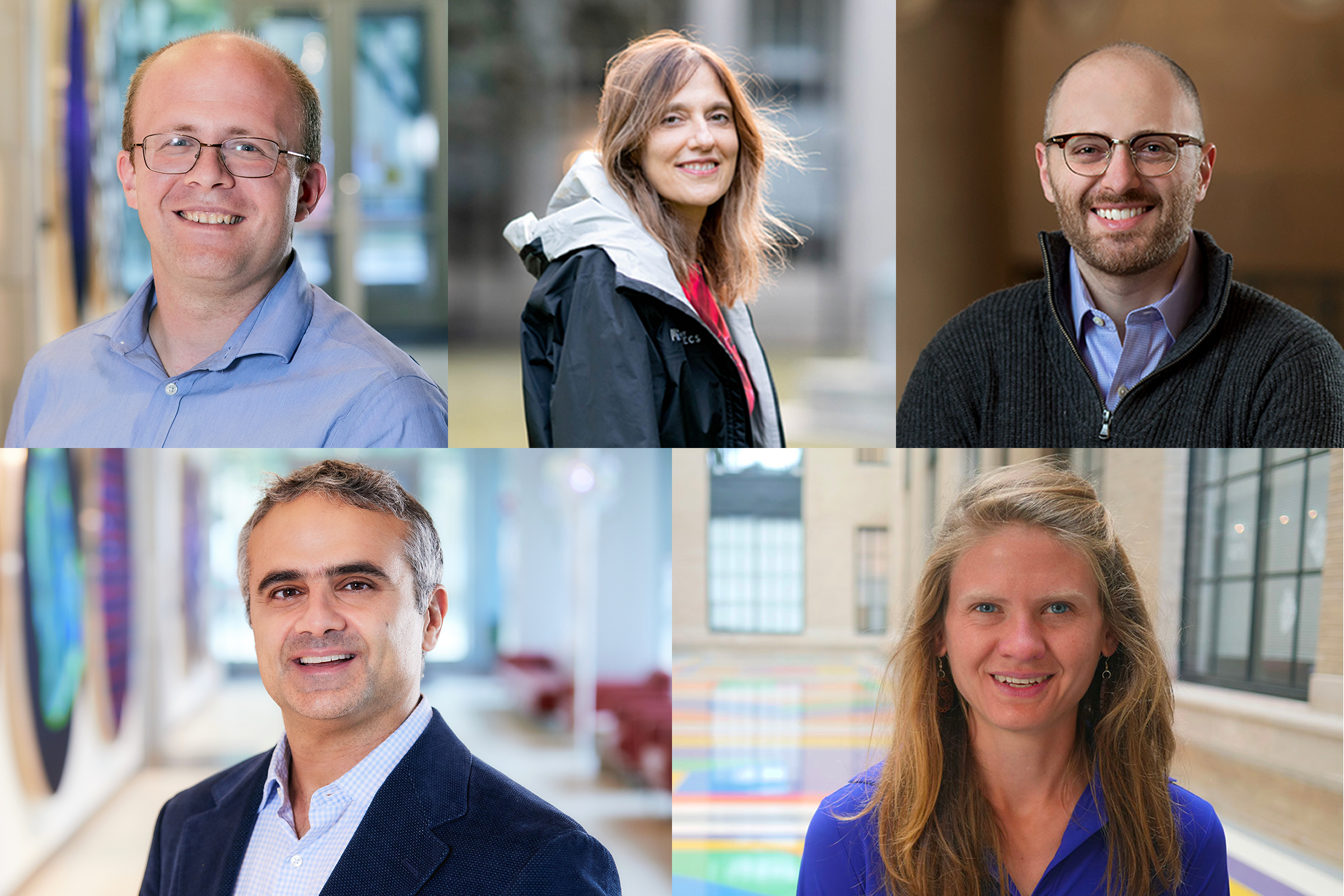[ad_1]

Most cancers Grand Challenges not too long ago introduced 5 successful groups for 2024, which included 5 researchers from MIT: Michael Birnbaum, Regina Barzilay, Brandon DeKosky, Seychelle Vos, and Ömer Yilmaz. Every group is made up of interdisciplinary most cancers researchers from throughout the globe and can be awarded $25 million over 5 years.
Birnbaum, an affiliate professor within the Division of Organic Engineering, leads Staff MATCHMAKERS and is joined by co-investigators Barzilay, the Faculty of Engineering Distinguished Professor for AI and Well being within the Division of Electrical Engineering and Laptop Science and the AI school lead on the MIT Abdul Latif Jameel Clinic for Machine Studying in Well being; and DeKosky, Phillip and Susan Ragon Profession Improvement Professor of Chemical Engineering. All three are additionally associates of the Koch Institute for Integrative Most cancers Analysis At MIT.
Staff MATCHMAKERS will reap the benefits of current advances in synthetic intelligence to develop instruments for personalised immunotherapies for most cancers sufferers. Most cancers immunotherapies, which recruit the affected person’s personal immune system in opposition to the illness, have reworked remedy for some cancers, however not for every type and never for all sufferers.
T cells are one goal for immunotherapies due to their central position within the immune response. These immune cells use receptors on their floor to acknowledge protein fragments known as antigens on most cancers cells. As soon as T cells connect to most cancers antigens, they mark them for destruction by the immune system. Nonetheless, T cell receptors are exceptionally numerous inside one individual’s immune system and from individual to individual, making it tough to foretell how anybody most cancers affected person will reply to an immunotherapy.
Staff MATCHMAKERS will accumulate information on T cell receptors and the completely different antigens they aim and construct laptop fashions to foretell antigen recognition by completely different T cell receptors. The group’s overarching purpose is to develop instruments for predicting T cell recognition with easy scientific lab checks and designing antigen-specific immunotherapies. “If profitable, what we be taught on our group may assist remodel prediction of T cell receptor recognition from one thing that’s solely doable in a couple of refined laboratories on the planet, for a couple of folks at a time, right into a routine course of,” says Birnbaum.
“The MATCHMAKERS challenge attracts on MIT’s lengthy custom of growing cutting-edge synthetic intelligence instruments for the good thing about society,” feedback Ryan Schoenfeld, CEO of The Mark Basis for Most cancers Analysis. “Their method to optimizing immunotherapy for most cancers and plenty of different ailments is exemplary of the kind of interdisciplinary analysis The Mark Basis prioritizes supporting.” Along with The Mark Basis, the MATCHMAKERS group is funded by Most cancers Analysis UK and the U.S. Nationwide Most cancers Institute.
Vos, the Robert A. Swanson (1969) Profession Improvement Professor of Life Sciences and HHMI Freeman Hrabowksi Scholar within the Division of Biology, can be a co-investigator on Staff KOODAC. The KOODAC group will develop new remedies for stable tumors in youngsters, utilizing protein degradation methods to focus on beforehand “undruggable” drivers of cancers. KOODAC is funded by Most cancers Analysis UK, France’s Institut Nationwide Du Most cancers, and KiKa (Youngsters Most cancers Free Basis) by Most cancers Grand Challenges.
As a co-investigator on group PROSPECT, Yilmaz, who can also be a Koch Institute affiliate, will assist tackle early-onset colorectal cancers, an rising international drawback amongst people youthful than 50 years. The group seeks to elucidate pathways, threat components, and molecules concerned within the illness’s growth. Staff PROSPECT is supported by Most cancers Analysis UK, the U.S. Nationwide Most cancers Institute, the Bowelbabe Fund for Most cancers Analysis UK, and France’s Institut Nationwide Du Most cancers by Most cancers Grand Challenges.
[ad_2]
Source link



